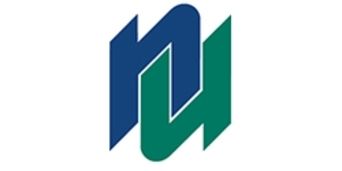Family/Human Development & Sociology Capstone Experience Sp2025
Experience scope
Categories
Data analysis Training & development Workplace health/wellness Healthcare Community engagementSkills
training and development teamwork problem solving critical thinking researchMaster's students from the T. Denny Sanford School of Social and Family Dynamics gain knowledge and skills necessary to promote successful relationships and positive outcomes for individuals, families, and communities across the life-span. Graduates often pursue careers working with children, youth, and adults in human, social and government agencies.
In this experience students will delve into their area(s) of interest, developing a greater depth and understanding of topics that influence children, youth, and families, and that further the student's academic and professional goals.
Capstone 3 students need to complete at least 40 hours of hands on experience that relates to their interests and their field of study. These hours must be completed during a 6-7 week-long capstone course. Students can complete these projects as individuals or teams.
We have Capstone every semester (spring, summer, and fall).
Learners
Students can work on a variety of deliverables, including but not limited to
- Non-Academic Writing (Including writing of white papers, blogs, mass media pieces, etc.)
- Academic Writing (Including writing of chapters, books or articles targeting an academic population)
- Grant applications (Including finding potential funders or opportunities, identifying the application requirements, help with fundraising, and writing the application)
- Content and/or Literature Review (Including identifying key and/or summarizing key academic papers, or finding content for programs/websites/apps)
- Research Design (Including identifying relevant populations and/or samples, developing instruments, supporting program evaluation)
- Data Collection
- Data Analysis (Including quantitative and qualitative data)
- Development of Curriculum or Other Learning Materials (including videos for websites)
- Case Management Services
- Projects related to the support of the needs of non-profits
Project Examples
Requirements
Students in this program have completed coursework in areas such as research methods, statistics, diversity and society, leadership and social justice, social change, child development, marriage/family relationships, and parenting. In addition to this coursework, many students bring other expertise with them from past employment and experience.
Areas that students have expressed interest include human resources, social services, public policy, advocacy, education, counseling, non-profit work, foster/adoption, and providing resources to families, youth, and other populations (e.g., support for the homeless, parenting class, relationship workshops).
Additional company criteria
Companies must answer the following questions to submit a match request to this experience:
We agree to provide a dedicated contact who is available to: 1) answer periodic emails or phone calls over the duration of the project to address students' questions, 2) participate in a short online meeting with the instructor to initiate your relationship and confirm your scope is an appropriate fit for the course, 3) complete a form to provide information for students about the organization
We agree to sign a Student Placement Agreement (SPA) between the organization and Arizona State University approximately 6 weeks prior to the start of the project
We agree to timely sign/approve weekly logs of student hours/activities, complete field experience performance evaluation, and discuss the final evaluation with student as student seeks ways to grow/improve
